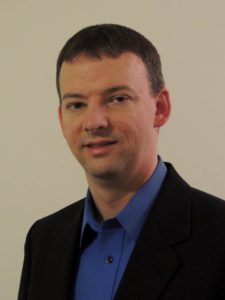Dr. Christopher Mears
Support Functional Manager
National Aerospace Solutions
Arnold Engineering Development Complex
Friday, April 29, 2022 2:00-3:00pm
Zoom only
Industry is very good at coming up with new names for the same thing, and such has been the case with the term “Asset Management.” Most think of this term as it relates to Physical Asset Management, which includes elements of maintenance best practices, reliability analysis & improvements, life cycle management, and many other related terms. Without proper management of the physical assets within your respective facilities, regardless of the terminology used, there will be increased costs, substantial downtime, lost revenue, and potentially a declining customer base.
However, there is another type of “Asset Management” that can potentially challenge your organization even more. This is related to your Human Assets, sometimes referred to as Human Capital Assets. Although many organizations will say that “our people are our greatest assets”, this is oftentimes ignored when considering current and future mission risks, which can cause the organization’s strategic and tactical planning to be incomplete. With the convergence of two problems facing many organizations across different types of industry today and in the years to come, the increasing knowledge-based workforce and the traditional approach of knowledge-transference within organizations, the challenges related to Human Capital Asset Management will soon negatively affect the bottom lines of organizations around the world.
Based on the initial work completed within my Ph.D., a methodology was developed that was applied to work at AEDC with success. I will neutralize the information to provide a framework methodology that might be used at some point within your current and/or future organizations.
Bio:
Christopher Mears, Ph.D., CMRP is the Operations and Maintenance (O&M) Support Functional Manager for National Aerospace Solutions (NAS), the prime contractor for the Arnold Engineering Development Complex (AEDC, www.arnold.af.mil). Christopher is leading the transformation of the overall work management and workforce utilization processes for all operations, maintenance, and capital improvement efforts performed by the prime contractor craft crews at the AEDC facilities in Tennessee, California, and Maryland (a total of between 700 and 800 craft personnel). In this role, Christopher is also actively working with the software programmers and support personnel in understanding what can and should be implemented with the site’s computerized maintenance management system (CMMS).
Christopher’s previous roles with other prime contractors at AEDC include Reliability Engineering Manager (where Christopher led a group of reliability engineers and maintenance and reliability specialists in the development of a Reliability-Centered Maintenance, Asset Life Cycle Management, and Maintenance & Reliability best practices for all assets and facilities at AEDC facilities), Asset Management Processes & Technologies Manager (which included PdM/CBM, CI, SE/CM, and TMDE), and various levels of Industrial Engineering. Alongside these roles, Christopher also led and supported various AF-wide and corporate-level maintenance & reliability evaluation and improvement efforts, including those at a number of NASA facilities (Ames (California), White Sands (New Mexico), Michoud (Louisiana), Stennis (Mississippi), and Kennedy Space Center (Florida)).
Christopher is a Certified Maintenance and Reliability Professional (CMRP), Six Sigma Black Belt, and Lean Facilitator. He has been formally trained in Lean, Six Sigma, and various Maintenance and Reliability analytical tools, including Failure Modes and Effects Analysis (FMEA), Root Cause Failure Analysis (RCFA), and Reliability Modeling. Christopher was the inaugural winner of the CMRP Rising Leader Award, awarded by the Society for Maintenance and Reliability Professionals (SMRP). Christopher has also served in a number of volunteer roles within multiple professional organizations, including his most recent role on the SMRP Board of Directors as Education Director (which concluded in October 2018). He was co-author of the Workbook to Accompany Maintenance and Reliability Best Practices (2nd Ed.) and listed as a significant contributor to Ramesh Gulati’s Maintenance and Reliability Best Practices (2nd Ed.).
Christopher received his Bachelor of Science in Industrial and Manufacturing Engineering from Tennessee Technological University and his Master of Science in Industrial Engineering from the University of Tennessee at Knoxville. Christopher received his Ph.D. in Industrial Engineering from the University of Tennessee at Knoxville in 2019.